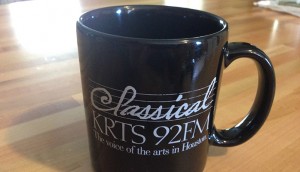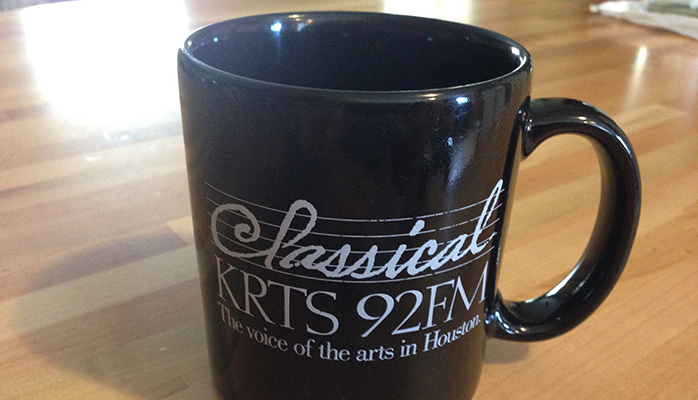
Do you have a voice in your community?
Who is the voice of the arts in your town?
After graduating college, I went to work at a commercial classical radio station in Houston Texas. The call letters were KRTS and we advertised that we were the voice of the arts in Houston. It wasn’t just advertisement, we worked really hard to give the arts community a platform to be heard.
I always loved that tag line. We weren’t speaking for the arts community, we were their voice. They spoke. It was their message and we made sure they were heard.
One thing that we did was to conduct interviews with artists, celebrities and performers that ran in almost every commercial break. The interviews were broken into short segments that followed a single question and answer format. These Arts Talk segments ranged in length from less than a minute to several minutes.
What I remember most about these was their incredible diversity which reflected the rich and diverse arts community in Houston at the time. We interviewed musicians, artists, sculptors, circus performers, patrons, actors, playwrights, directors, composers, street musicians, arts administrators, creative directors and much more. Anyone involved in the arts had the opportunity get their message out and help build a stronger community.
We weren’t using the internet in those days, so interviews were scheduled by calling the artist. We did our research at the public library and sometimes in the station’s music library. It was a time when you could know something about the interview subject, but there were always going to be surprises.
When these surprises came up, we learned something about the artist that we didn’t know before the interview. They would sometimes provide context that we weren’t aware of, other times they would reveal something about their artistic process and what made a particular work important or unique. Often we would learn about collaborations and how artists from different disciplines came to collaborate on a particular project.
We knew that all of the major cultural organizations would stop by regularly to promote upcoming seasons, installations, performances, festivals and more. Smaller organizations would promote themselves less frequently. This gave us a lot of content at any given time which established the station as a true voice of the arts. The arts community also knew that we welcomed them whenever they needed to be heard.
I like to think that we had a lot to do with maintaining a vibrant arts community. We gave artists a voice to let people know not just what was out there, but why they should care and what it meant in a larger context. We fostered awareness and connection within the community. We did this in a way that didn’t take up much time, but could be counted on to be there whenever you turned on the radio.
The station has long since closed and I haven’t lived in Houston for over 25 years. Still, I wonder what has replaced KRTS as the voice of the arts in Houston. What about in your town? Do you have an outlet that helps you maintain a healthy arts community? I would love to hear about it.

